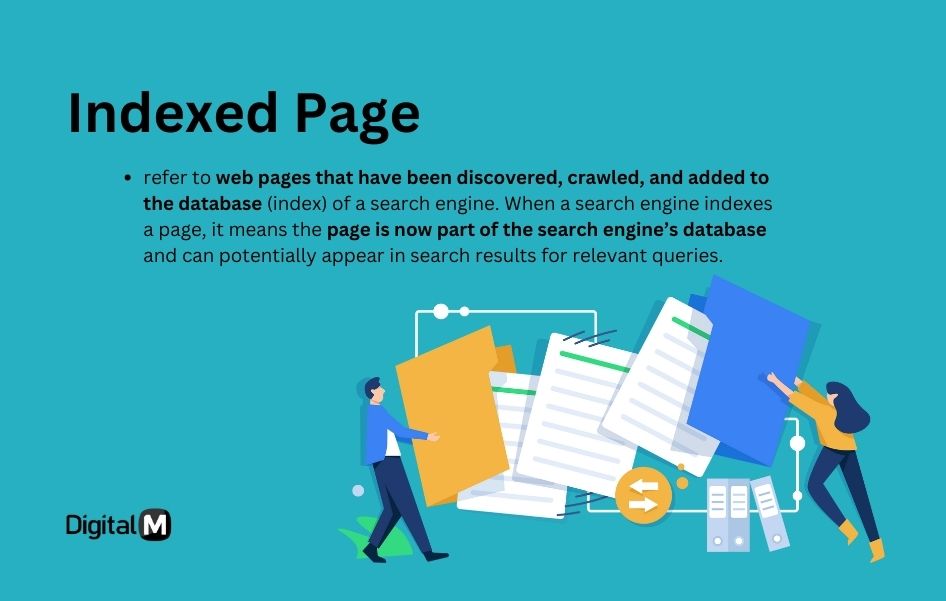Indexed Page
Indexed pages refer to web pages that have been discovered, crawled, and added to the database (index) of a search engine. When a search engine indexes a page, it means the page is now part of the search engine’s database and can potentially appear in search results for relevant queries.

Indexed Pages:
Indexed pages are web pages that have been crawled and added to the database of a search engine. These pages are now available for retrieval and display in search engine results pages (SERPs).
When you create a webpage and a search engine discovers and stores information about it in its database, that page is considered indexed. It’s like the page being cataloged in a massive library for users to find.
Key Points:
Crawling Precedes Indexing: Before a page can be indexed, search engine bots (crawlers) explore the web to discover and analyze content. Crawling is the process of navigating through the web and collecting information.
Database of Information: The index is a massive database that contains information about the content, keywords, and structure of web pages. This database is used to quickly retrieve relevant results for user queries.
Ranking and Retrieval: Once a page is indexed, search engines use complex algorithms to analyze its content and rank it based on relevance, quality, and other factors. Indexed pages are then retrieved and displayed in response to user searches.
Example:
If you have a blog post about “gardening tips,” and a search engine’s crawler discovers and analyzes that page, the blog post becomes an indexed page. When users search for “gardening tips,” the search engine may include your blog post in the search results.
In summary, indexed pages are web pages that have been crawled, analyzed, and added to the database of a search engine. These pages are available for retrieval and display in search results, contributing to the information available to users searching for relevant topics.

